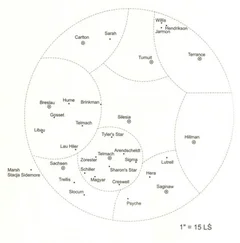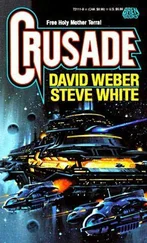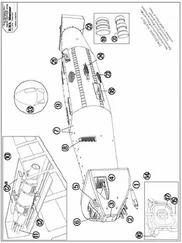Mesa's summers were probably tougher on human beings than its winters—but the summers weren't bad either. The planet's sun was a G2 star virtually identical to Sol, and Mesa itself was almost a twin of Earth. Not quite. The gravity was almost identical, but Mesa had slightly more land surface. That might have made the climate more extreme than Earth's, with less of the ameliorative effect of oceans. But Mesa was about 40 light-seconds closer to the system primary and had a much smaller axial tilt—only nine degrees, in contrast to the home planet's twenty-three and a half. So the average temperature was somewhat higher and the seasonal variations quite a bit smaller.
On most of the planet's surface, in fact, winter never brought any snow at all. But the planet had taken the name of "Mesa" from the high, tableland mesa near the center of its largest continent where the survey party placed its initial base camp on the planetary surface. What eventually became the planet's capital city had developed there, for the same largely accidental reasons that most cities on most worlds came into existence. Being at a greater altitude than most of the planet, and with a definitely continental effect, the weather in the capital was probably worse than almost anywhere else on Mesa.
That wasn't saying much. In truth, Mesa was one of the most pleasant worlds Anton or Victor had ever visited. That made it even more disgusting that it had become the center for what both of them considered one of the foulest political systems ever produced by the human species—which had produced plenty of foul political systems, since the pharaoh Khufu erected his great pyramid with the use of slave labor more than six and half millennia in the past.
Anton and Victor now knew a lot more about the true nature of Mesa's political system than they had when they landed on the planet, or than any other Manticorans or Havenites still knew. Jack McBryde had been cagey about imparting information to them, in each of the secret meetings they'd had since the initial contact. He'd peeled off that data much like the onion he used to depict the centuries-old strategy of the shadowy conspiracy he'd introduced to them as "the Alignment." Being as sparing as possible, each time, in the hopes of bargaining for a better deal.
Still, he'd had to give them a lot already. It was just a crude fact of life that a person seeking to defect had less in the way of bargaining power than the people in a position to provide a new life for him or her. And neither Anton nor Victor was in any mood to be charitable.
It spoke well for Jack McBryde, true enough—even Victor would allow this much—that he'd come to understand and detest the system created over the centuries by what he called the Mesan Alignment. But it was still appalling that any man with his obvious intelligence—even genuine sensitivities—could have supported that system as long as he had, in such a central capacity, before he finally turned against it.
As Victor had quipped sarcastically after their third meeting with McBryde, paraphrasing a line from one of his favorite movies, it was as if an officer at one of the ancient Nazi death camps was suddenly to exclaim: "I am shocked—shocked!—to discover genocide at Auschwitz!" (Anton had understood the reference, but he'd had to explain it to Yana.)
That probably wasn't entirely fair. Anton pointed out that the initial impulses that eventually led to the Mesan Alignment had clearly been idealistic, which it was awfully hard to say of the vision of the ancient despot Hitler. This was hardly the first time in human history, after all, that a political movement (or religion, for that matter) had begun with the best of intentions and turned into something which its founders would never have imagined might be the horrible end result. He went so far as to point out—after clearing his throat—that Victor himself bore an uncanny resemblance to many of the members of the Bolshevik Cheka in the early years of the Russian revolution almost two centuries before the Diaspora.
Victor knew what Anton was referring to; and, after stiffening for a moment, had admitted (even with a slight smile) there was possibly a certain resemblance. In the years since he'd met Kevin and Ginny Usher, Cachat had become a genuine student of history.
"It's still not the same, Anton," he'd said. "If you know that much about ancient history, then you also know that within two decades of the original revolution the tyrant named Stalin had murdered almost all of those early revolutionaries and replaced them with his own lickspittles. Rob Pierre and especially Saint-Just tried to do the same thing with the Aprilists in our own revolution—and damn near succeeded.
"But we're talking centuries here , Anton, not decades. Centuries during the course of which these people committed the foulest crimes you can imagine, condemning generations of other people to slavery and brutality—and Jack McBryde finally starts choking on it, more than half a millennium after it began and after enjoying a long career himself at the trade?"
By the time he'd finished, Victor had been as outwardly angry as Anton had ever seen him.
"So . . . what?" he said. "Do you want to tell McBryde to take a flying leap into hellfire and be damned to him?"
That had been enough to crack Cachat's quiet fury. "Well . . . no, of course not." He even managed a chuckle. "I'm not crazy, after all. McBryde could be one of Shaitan's top underlings and I'd work with him under these circumstances, if he wanted to defect from Hell. Holding my nose, maybe, but I'd do it. We have far too much to gain—and that's not even counting these latest hints McBryde's been giving us."
Anton looked skeptical. "Do you really think he's got his hands on some sort of super-secret technical developments—assuming those developments exist at all?"
"I don't think McBryde himself knows diddly squat about starship design, which is what he's been hinting at. But if I'm interpreting some other remarks of his properly, he's got someone else with him. Someone whom he's kept out of sight from us up until now."
Anton stared at the wall, thinking about it. There had been the suggestion, in some of what McBryde had said in their last meeting the day before yesterday, that—if you interpreted it this way, and then tweaked it that way—it was not for nothing they called this trade a hall of mirrors—he wanted some form of transport off the planet that was more elaborate than a single person would need. Anton had been a little puzzled by it at the time, in fact. McBryde was a security specialist himself, so he knew perfectly well that the easiest and safest way to smuggle someone off a planet with security precautions as tight at Mesa's was to disguise them in some way or another as someone else. The more people you tried to do that for, the harder it got—and the increase in the risk was exponential, not linear.
Alternatively . . .
He sucked in a breath. "How many people then, do you think?"
"At a guess, just one," replied Victor. "McBryde doesn't have a wife or children—or significant other of any kind, so far as we've been able to determine. I get the feeling he's rather close to his family, but I'd be astonished if someone with his training and experience would do anything to compromise them. There's no possible way he could get all of them off the planet, parents and siblings both. And for all we know some of his brothers and sisters have children of their own."
Cachat leaned forward over the kitchen table, leaning his weight on his arms. "He's putting them all at a considerable risk already, it seems to me. Once he leaves, there'll be hell to pay, even if there's no indication that any of them knew what he was planning. If this were Haven under Pierre and Saint-Just, his family would probably all be executed anyway. But from everything we've been able to determine, this Mesan Alignment doesn't operate that crudely."
Читать дальше












